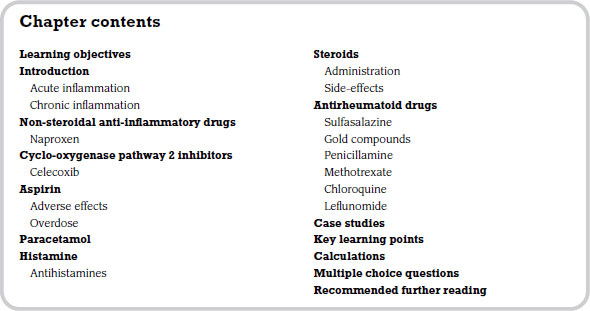Anti-Inflammatory Medications (AIM)

Anti-Inflammatory Medications (AIM): Overview
Anti-inflammatory medications are drugs designed to reduce inflammation, relieve pain, and lower fever. They are widely used to treat a variety of conditions involving inflammation, such as arthritis, musculoskeletal injuries, autoimmune diseases, and infections.
Types of Anti-Inflammatory Medications
- Nonsteroidal Anti-Inflammatory Drugs (NSAIDs)
- The most common class of anti-inflammatory drugs.
- Examples: aspirin, ibuprofen, naproxen, diclofenac, celecoxib.
- Mechanism: NSAIDs inhibit cyclooxygenase enzymes (COX-1 and COX-2), which are responsible for producing prostaglandins—chemical mediators that cause inflammation, pain, and fever.
- COX-2 inhibition mainly provides anti-inflammatory and analgesic effects, while COX-1 inhibition is associated with side effects like gastrointestinal irritation.
- Used for pain relief, fever reduction, and inflammation control in conditions like arthritis, musculoskeletal injuries, menstrual cramps, and headaches.
- Aspirin also has antiplatelet (blood-thinning) effects useful in preventing heart attacks and strokes.
- Corticosteroids
- Synthetic drugs that mimic cortisol, a natural hormone that suppresses inflammation.
- More potent anti-inflammatory effects than NSAIDs but with a different mechanism involving suppression of multiple inflammatory pathways.
- Used for autoimmune diseases, severe allergies, asthma, and other inflammatory conditions.
- Require careful monitoring due to potential side effects with long-term use.
Common Uses of NSAIDs
- Relief of acute and chronic pain (e.g., headaches, dental pain, muscle strains)
- Treatment of inflammatory conditions such as rheumatoid arthritis and osteoarthritis
- Reduction of fever
- Management of menstrual cramps and postoperative pain
- Prevention of cardiovascular events (low-dose aspirin)
Side Effects and Considerations
- Gastrointestinal irritation, ulcers, and bleeding (especially with non-selective NSAIDs)
- Kidney toxicity with prolonged use or in vulnerable patients
- Increased cardiovascular risk with some COX-2 selective inhibitors
- Allergic reactions and asthma exacerbations in sensitive individuals
- Not suitable for everyone; contraindicated in certain conditions like peptic ulcer disease or severe kidney impairment
Summary
Anti-inflammatory medications, primarily NSAIDs and corticosteroids, are essential tools in managing pain, inflammation, and fever. NSAIDs work by blocking prostaglandin synthesis through COX enzyme inhibition, providing effective symptom relief for many common conditions. Selection of the appropriate agent depends on the condition being treated, patient risk factors, and desired duration of therapy.
References
- StatPearls: Nonsteroidal Anti-Inflammatory Drugs (NSAIDs)1
- Better Health Victoria: Medications – Non-steroidal Anti-inflammatory Drugs2
- NHS: NSAIDs Overview3
- ScienceDirect: Anti-Inflammatory Drugs Overview4
- PMC: Comprehensive Review of NSAIDs5
- MedCrave: NSAIDs in Resource-Limited Countries6
- HealthDirect: Anti-inflammatory Medicines7
- Cleveland Clinic: Non-steroidal Anti-inflammatory Medicines8
Consult with Our Team of Experts Now!
At DrStemCellsThailand (DRSCT)‘s Anti-Aging and Regenerative Medicine Center of Thailand, we emphasize comprehensive evaluations and personalized treatment plans of Cellular Therapy and Stem Cells for managing various health conditions. If you have questions about Anti-Inflammatory Medications or would like more information on our services, consult with our experts today!















